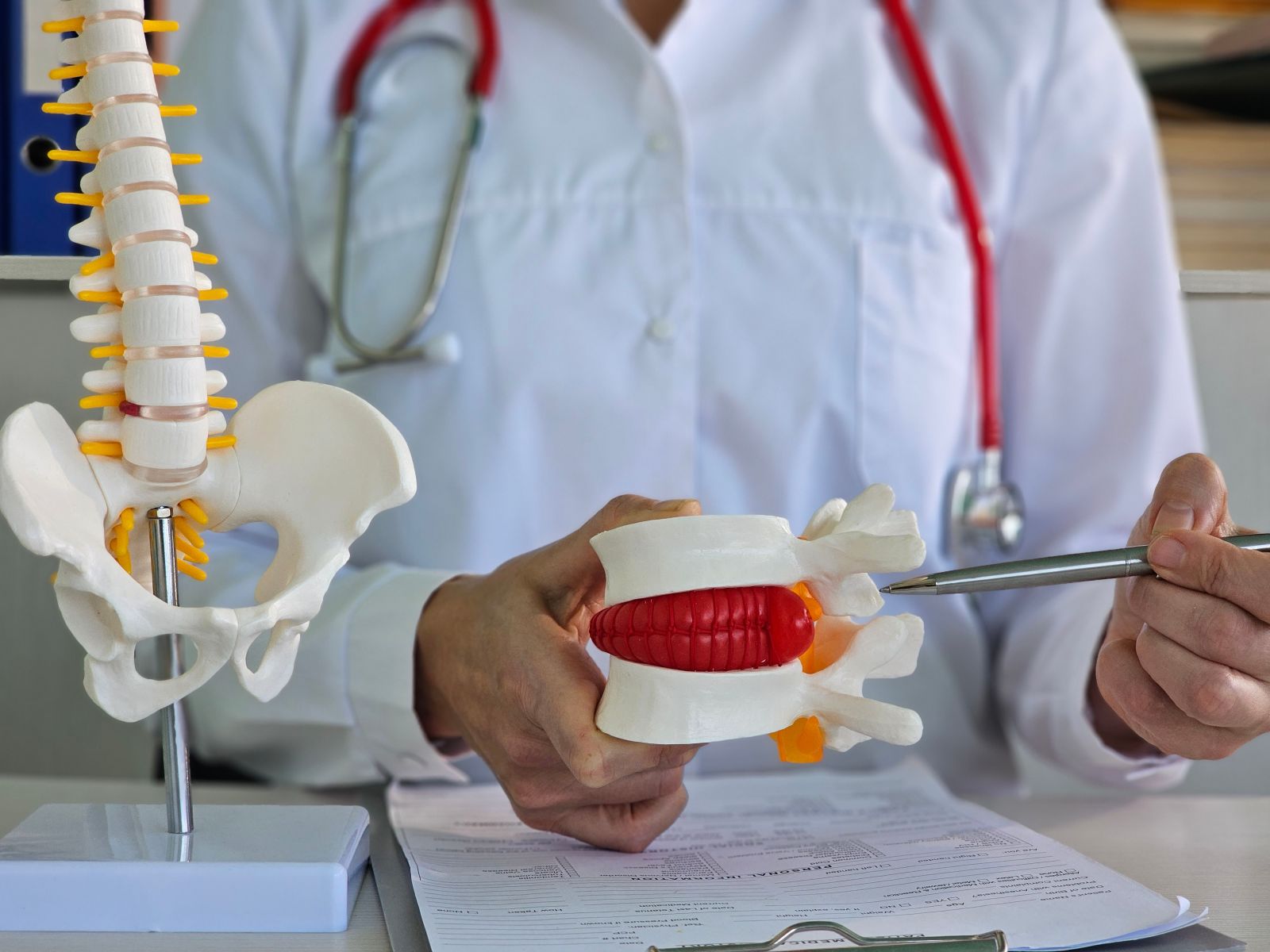Anterior cervical discectomy and fusion (ACDF) is a surgical procedure designed to address serious spine conditions such as herniated discs, spinal stenosis, and degenerative disc disease. For individuals experiencing neurological symptoms (such as weakness or numbness) and/or neck pain, ACDF offers a reliable solution to relieve pressure on the spinal cord and/or nerve roots and stabilize the spine.
While surgery can feel like a significant step, delaying or avoiding treatment can lead to serious complications, including worsening symptoms, nerve damage, and permanent loss of function. Understanding the risks of not undergoing ACDF surgery is essential to making an informed decision about your health and long-term well-being.
Potential Risks of Not Having ACDF Surgery
Choosing not to undergo ACDF surgery involves the following risks:
Progression of Symptoms
Typically, your surgeon will not recommend anterior cervical discectomy and fusion unless you’re facing severe symptoms and other treatments have failed. Once you reach the point of needing surgery, the symptoms probably won’t resolve on their own. Untreated nerve compression or spinal instability can cause increasing disability or pain over time.
If weakness or numbness progresses, you may struggle to perform basic tasks like holding a cup of coffee or typing a text. Walking may become difficult, and you might encounter issues with urination. Worsening pain may radiate to your arms and shoulders. That disability and pain can diminish your overall well-being and prevent you from participating in activities you enjoy.
Permanent Nerve Damage
Prolonged nerve compression can cause permanent damage, even if surgery is eventually performed. You could face lifelong impairments such as reduced mobility, loss of coordination, and persistent pain.
Opting for surgery sooner could promote more favorable outcomes. It’s vital that you consult with an experienced neurosurgeon about your nerve damage as soon as possible. Talk to the Neurosurgeons of New Jersey today and determine the best solution to address your nerve damage.
Spinal Cord Compression
Untreated spinal cord compression can lead to cervical myelopathy. This condition is characterized by symptoms such as hand numbness, loss of coordination, difficulty walking, and urinary issues. If you do not treat your cervical myelopathy, it could lead to severe disability. In rare instances, spinal cord compression could progress to partial or complete paralysis.
Reduced Quality of Life
Chronic nerve pain and numbness can dramatically impact your quality of life. Decreased mobility may make it harder for you to work, exercise, or engage in hobbies you love. This can lead to frustration and a loss of independence.
Giving up things you love can have a severe impact on your mental and emotional health. Living with ongoing physical limitations and pain may lead or contribute to challenges such as depression and anxiety.
ACDF surgery can provide partial or permanent relief for your issues. While you may still have to give up some activities you love, you will have the opportunity to explore new hobbies with less (or potentially no) disability or pain.
Potential for Emergency Situations
Delaying surgery may result in sudden and severe worsening of symptoms, such as loss of motor function or sensation. Although this could be triggered by minor trauma, an acute decline can simply result from waiting too long.
Severe spinal cord damage can lead to emergencies that require immediate intervention. Emergency surgery has the disadvantage of not allowing for a more coordinated approach compared to elective surgery performed by an experienced neurosurgeon. This could increase the risks of the surgery.
It's time to get back
to doing what you love.
Factors Influencing the Decision to Undergo Surgery
There are several variables to consider when deciding whether to undergo anterior cervical discectomy and fusion. Start by assessing the severity of your symptoms. Do you have weakness or numbness that interferes with performing daily tasks like holding objects, walking, or getting dressed yourself? Has pain prevented you from engaging in activities you enjoy?
Many patients undergo ACDF surgery to address severe symptoms. However, just because your symptoms are mild does not mean you should avoid the procedure. Your symptoms can worsen rapidly if you leave severe spinal conditions untreated.
You should also think about the duration of your symptoms. If you delay the surgery after the onset of serious symptoms, you could increase your risk for further deterioration. Take some time to talk to your doctor and your loved ones about the procedure. However, you shouldn’t wait, especially if your symptoms are getting worse.
Lastly, it’s important to take your overall health and any medical conditions into account, as many of these could potentially affect your outcome. An experienced neurosurgeon can help explain how your other medical problems may impact your ACDF recovery process.
Avoiding or delaying ACDF surgery when it’s medically indicated can lead to:
- The progression of symptoms
- Nerve damage
- Permanent disability
- Reduced quality of life
- Potential emergency situations
Early intervention can protect you from these complications. At Neurosurgeons of New Jersey, our team of experienced specialists will provide personalized care to address your spine health concerns. We encourage you to schedule a consultation or obtain a second opinion from one of our experienced providers.
You can find a list of our office locations and direct lines for each office on our website. Give us a call or complete the appointment request form on our site to schedule a consultation with Neurosurgeons of New Jersey.

About Ridgewood
Our team of board certified physicians, located in Ridgewood, New Jersey, are dedicated to bringing you the latest developments and treatment options for spinal surgery. We strive to produce the most clarified & clear content to help you make informed decisions on your medical journey. The road to feeling like your true self should not feel lonely- Let us help you. Please call us to schedule a consultation and speak to one of our team members.
Recent Posts:






